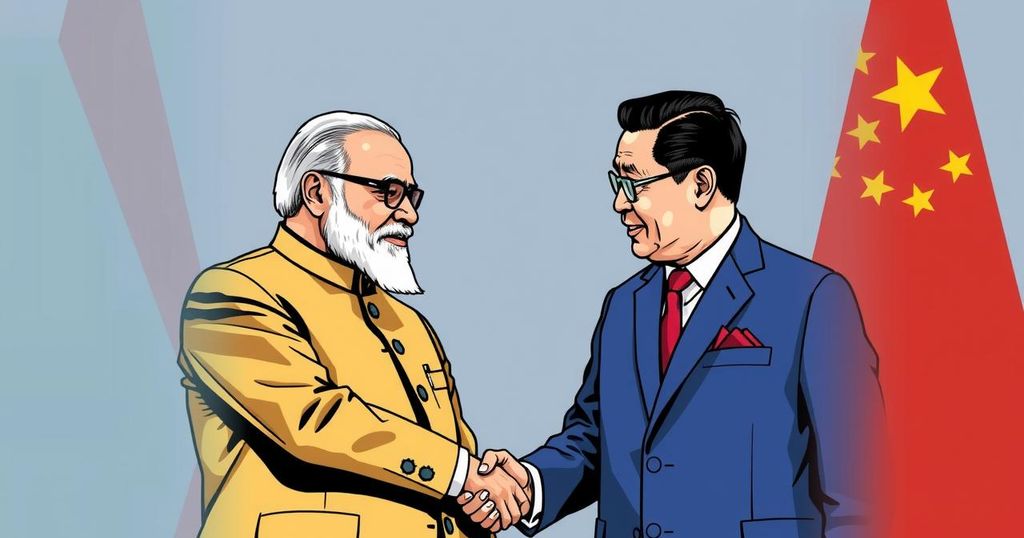India and China are taking significant steps towards improving bilateral relations, focusing on resuming direct flights and the Kailash Mansarovar pilgrimage. External Affairs Minister S. Jaishankar met Chinese Foreign Minister Wang Yi at the G20 Summit in Brazil, marking a pivotal point since recent disengagements in Ladakh. The engagement aims to bolster understanding, manage differences, and lay the groundwork for stable international relations.
Recent discussions between India and China signify a new phase in bilateral relations, as both nations seek to resume direct flights and restart the revered Kailash Mansarovar pilgrimage. External Affairs Minister S. Jaishankar’s meeting with Chinese foreign minister Wang Yi during the G20 Summit in Rio de Janeiro marked the first significant engagement since the disengagement was finalized in eastern Ladakh. Enhanced dialogue aims to bolster peace and develop mutual understanding amidst previous tensions originating during the pandemic era. Key topics addressed included data sharing regarding trans-border rivers and strengthening media exchanges to foster cooperation. The importance of maintaining stable and constructive relations was emphasized, along with the need to navigate differences with sincerity and mutual trust.
The relationship between India and China has historically fluctuated due to various territorial disputes and geopolitical interests. The most recent strain arose from the military stand-off in Ladakh, initiated in May 2020, which saw both nations amassing troops along their disputed borders. This conflict was exacerbated by a violent clash in Galwan during June 2020. Since then, both nations have engaged in military-level discussions to address the standoff while exploring avenues for rebuilding ties, particularly through high-level diplomatic engagements.
The recent dialogue between India and China marks a promising development aimed at stabilizing relations that have been tense for years. With a commitment to resuming flights and pilgrimage, and discussing core issues like trans-border river data sharing, both countries are acknowledging the significance of trust and dialogue. Continued dialogue and constructive approach may pave the way for a healthier bilateral relationship conducive to regional stability.
Original Source: www.ndtv.com






